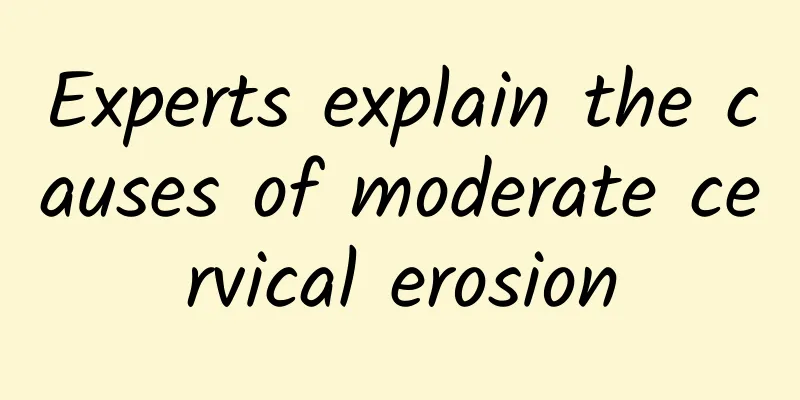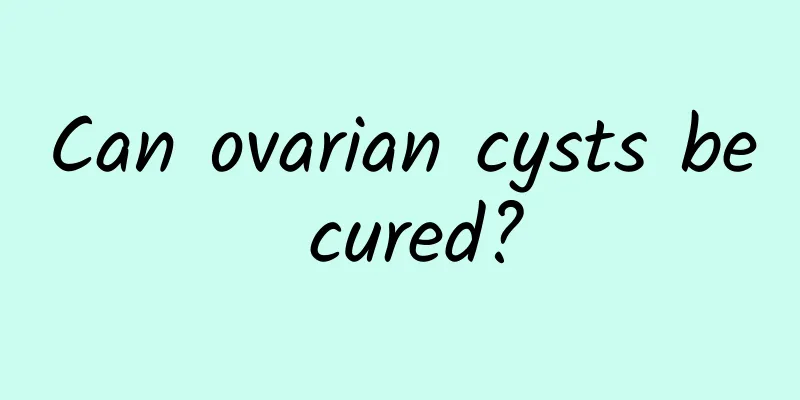What is the reason for bleeding again after a few years of menopause?

|
There may be many reasons for bleeding a few years after menopause, including physiological factors, senile vaginitis, cervical lesions, endometrial and ovarian lesions, hormone replacement therapy or drug effects. If a woman bleeds after menopause, it is recommended to seek medical attention in time for timely diagnosis and treatment. During the examination, gynecological internal examination, cervical cancer smear, B-ultrasound, hysteroscopy, segmental curettage and other examination methods may be needed to clarify the cause. If there is bleeding a few years after menopause, it is recommended to pay attention and go to the hospital gynecology department as soon as possible. After clarifying the cause, actively cooperate with the doctor's treatment. 1. Physiological factors: Women may have consumed foods containing high levels of estrogen, such as royal jelly, donkey-hide gelatin, Panax notoginseng powder, etc., or eaten off-season vegetables and fruits and farmed fish and shrimp. These foods may thicken the endometrium and lead to bleeding. Another physiological possibility is that there may be a residual follicle developing in the female body, which will lead to the secretion of estrogen and progesterone, resulting in a small amount of menstruation. 2. Senile vaginitis: After menopause, ovarian function declines, estrogen levels drop, and vaginal mucosal tissue becomes thinner, resulting in a decrease in local resistance, which can easily lead to senile vaginitis. This inflammation may cause congestion and edema of the mucosal tissue, which in turn causes bleeding during sexual intercourse. 3. Cervical lesions: including cervical polyps, cervical erosion, cervical cancer and other cervical problems. Cervical polyps or cervical erosion may cause contact bleeding, while bleeding from cervical cancer may be more significant, especially during sexual intercourse or gynecological examinations. 4. Endometrial and ovarian lesions: Endometrial polyps, endometrial cancer, and ovarian tumors may all lead to postmenopausal bleeding. In particular, endometrial cancer may be associated with a history of obesity, hypertension, diabetes, and other medical conditions, and may manifest as postmenopausal bleeding and uterine enlargement. 5. Hormone replacement therapy or drug effects: Some women may use hormone replacement therapy to relieve symptoms after menopause. However, these drugs may affect hormone levels and cause bleeding. Some other drugs, such as anticoagulants or certain anticancer drugs, may also cause bleeding. Bleeding several years after menopause may be caused by a variety of reasons, which need to be clarified through professional medical examination. After finding out the cause, actively cooperate with the doctor's treatment. |
<<: What causes diarrhea during ectopic pregnancy?
>>: What are the precautions during the treatment of vaginitis?
Recommend
Patients with vulvar leukoplakia should undergo timely examination
The incidence of vulvar leukoplakia in my country...
Several hazards of uterine fibroids that should not be underestimated
Uterine fibroids are a gynecological disease that...
How much does uterine fibroid surgery cost?
The cost of uterine fibroid surgery is often a co...
Common causes of vulvar leukoplakia
Some people don't know much about the disease...
Things to note when preventing vaginitis
Many people must know or understand the disease o...
Diseases that should be differentiated from acute pelvic inflammatory disease
Acute pelvic inflammatory disease is more common ...
Can sweet potatoes really help you lose weight? Nutritionist: Low GI food does not mean you won’t gain weight
Sweet potato is a nutritious food, rich in vitami...
Women's adnexitis may be related to their work
Female adnexitis may be related to their work, ma...
Irregular menstruation after interventional embolization for uterine fibroids
Irregular menstruation after interventional embol...
What should I do if my body is still dirty after a miscarriage?
If your body is not clean after abortion, it mean...
Introduction to two common types of cervical erosion
Cervical erosion is a gynecological disease in wh...
Rethinking yoga postures to reduce the burden on the lumbar spine, beginners should start with lying down
When practicing yoga, lying down is the easiest a...
Regular life can help women prevent ovarian cysts
Ovarian cyst disease is a gynecological disease. ...
How to cure ovarian cysts
How to cure ovarian cysts? Ovarian cysts are the ...
Can cervical erosion be transmitted to others?
Cervical erosion is a relatively common gynecolog...









